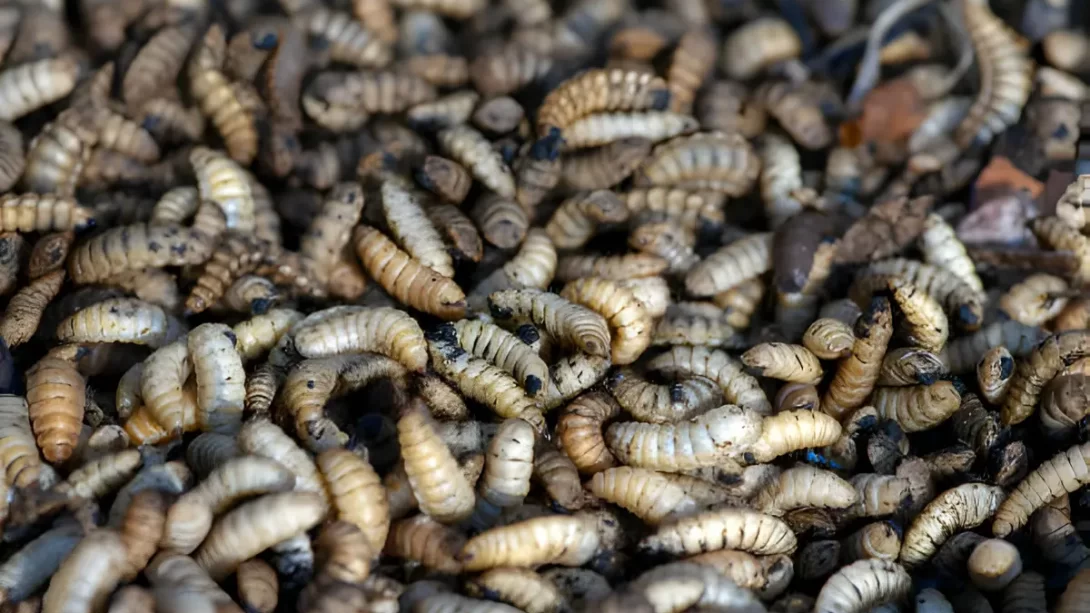Maggots, the larvae of flies, are often met with disgust and concern, particularly when they appear in residential areas. These small, white creatures can infest garbage bins, compost heaps, and even homes, causing hygiene issues and distress. A common question asked by those dealing with maggot infestations is whether sun exposure can effectively eliminate them. This article aims to explore the impact of sunlight on maggots and assess its efficacy as a control method.
Maggots
Maggots are essentially the larval stage of flies, most commonly the housefly. Their life cycle begins as eggs laid in decaying organic matter, from which they hatch as maggots. They thrive in warm, moist environments where they feed on decomposing organic material. This stage lasts approximately 5 to 10 days, after which they develop into pupae and eventually mature into adult flies. Understanding this lifecycle is key to effective maggot control and prevention.
Maggots and Sun Exposure
Sunlight can have a significant impact on maggots. These larvae prefer dark, moist conditions and are generally averse to bright light and dry environments. Prolonged exposure to direct sunlight can dehydrate and kill them, as they are unable to regulate their body moisture effectively. However, the effectiveness of sunlight as a control method depends on several factors, including the intensity of the sun, duration of exposure, and the maggot’s access to shelter.
The Effectiveness of Sunlight in Killing Maggots
Sunlight can be a potent weapon against maggots, but its effectiveness varies. The key factor is dehydration; maggots have high moisture needs, and intense sunlight can rapidly dehydrate and kill them. For sunlight to be effective, maggots must be exposed to direct, intense sun for several hours. This method works best in hot, dry climates where the sun’s rays are strongest. However, it’s important to note that maggots often reside deep within waste or soil, where they can escape direct sunlight, making this method less effective in some scenarios.
The effectiveness of sunlight also depends on the lifecycle stage of the maggots. Younger larvae may be more vulnerable to dehydration, while older ones might be able to burrow deeper to escape the heat. Additionally, the presence of any moisture or organic matter can lessen the impact of sunlight, as it provides the maggots with a habitat more conducive to their survival.
Alternative Methods for Controlling Maggot Infestations
While sunlight can be a useful tool in dealing with maggots, it may not always be the most practical or effective method. There are several other strategies that can be employed to control and prevent maggot infestations.
- Sanitation and Hygiene: The most effective way to prevent maggots is to eliminate their breeding grounds. This means maintaining cleanliness, especially in areas where organic waste is present. Regularly cleaning and disinfecting garbage bins, ensuring that food waste is properly sealed, and removing any decaying organic matter from your property can greatly reduce the likelihood of maggot infestations.
- Chemical Treatments: In severe cases, chemical insecticides can be used to kill maggots. It’s crucial to choose a product specifically designed for this purpose and to follow the application instructions carefully. Keep in mind that chemical treatments can have environmental impacts and should be used as a last resort.
- Natural Remedies: There are also natural methods to combat maggots. Solutions like vinegar, boiling water, or diatomaceous earth can be effective in killing maggots. These methods are more environmentally friendly and are often preferred by those seeking a more natural approach.
Conclusion
In conclusion, while sunlight can be an effective method for killing maggots due to its dehydrating effect, its success is dependent on various factors. These include the intensity and duration of sunlight exposure, the lifecycle stage of the maggots, and their ability to find shelter. It’s important to consider that sunlight alone may not be sufficient in all cases, especially in less sunny climates or where maggots have access to moist, sheltered areas.
For a comprehensive approach to maggot control, a combination of methods is often most effective. Maintaining good sanitation and hygiene is paramount. Regularly cleaning areas prone to maggot infestations, such as garbage bins and compost piles, and properly disposing of organic waste can significantly reduce the chances of a maggot problem.
When dealing with an active infestation, chemical treatments can be used, but with caution and adherence to safety guidelines. Natural remedies like vinegar, boiling water, or diatomaceous earth offer a more environmentally friendly alternative, though their effectiveness can vary.
Ultimately, the best strategy against maggots is prevention. By understanding the conditions that attract them and taking proactive steps to create an inhospitable environment for these larvae, you can effectively manage and prevent maggot infestations.
Maggots, while a natural part of the ecosystem, can be unwelcome guests in residential areas. By employing a combination of direct intervention, such as sunlight exposure or natural remedies, and preventive measures like proper waste management, you can effectively control and prevent their presence. Remember, consistency in these efforts is key to keeping your environment maggot-free.




